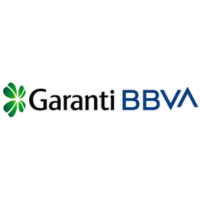In the wake of the COVID-19 pandemic, the corporate world has undergone significant transformations, with hybrid work models emerging as a prominent feature.
Nearly four years after the pandemic began, a shift in work patterns has taken place, with many employees dividing their time between home and the office. According to a study published in the scientific journal Nature, over 70% of employees globally are now following a hybrid schedule. This transition has led to increased job satisfaction and decreased quit rates, particularly among non-managers, female employees, and those with long commutes.
Employers may need to invest in technology and infrastructure to support hybrid working models effectively, ensuring that employees have the necessary tools and resources to work efficiently from home, Nature highlighted.
Corporate treasury teams, traditionally office-based, have shifted towards hybrid remote and offsite working patterns and practices since the pandemic. This transformation echoes shifts observed globally, profoundly altering the landscape of corporate work environments. At the 2024 EuroFinance Global Treasury Americas Miami conference, treasurers shared their perspectives and strategies on navigating this new normal work environment.
Doug Tropp, senior VP and treasurer at Booking Holdings Inc., a global travel technology company, recalled the initial upheaval caused by the pandemic’s onset. “When the work-from-home trend began, it was driven by COVID-19,” Tropp reflected. “Our world turned upside down as travel shut down and lockdowns were imposed everywhere.” For Booking Holdings, the sudden halt in global mobility necessitated swift and rigorous adaptation. “Travel stopped immediately, and we had to batten down the hatches wherever we were,” Tropp said.
Facing the uncertainty, the company strategised survival scenarios, rigorously stress-testing their financial resilience. “We modelled scenarios with zero revenue and zero EBITDA for up to three years to understand our survival horizon,” he added, drawing parallels to financial stress tests conducted by banks.
The period was arduous, marked by round-the-clock efforts to navigate unprecedented challenges. “Most of our COVID experience was incredibly stressful, with around-the-clock work from wherever we were,” Tropp reflected. However, amidst the turmoil emerged lasting changes in their operational practices. “Now, working from home feels very natural and unstressful, probably even the best way to operate,” he noted.
Before COVID-19, working from home was not an option at Amcor Plc, a global packaging company. However, the pandemic changed everything. Management quickly realised that remote work was not only possible but also effective.
AnaCarla Costa, the director of global capital markets and Americas treasurer at Amcor Plc, reflected on this shift. “There was definitely a push from the senior management for everybody to go back every day, but there was a lot of pushback. Ultimately, we landed on three days in the office and two from home,” she noted.
From challenges to solutions
Costa highlighted several strategies for overcoming the challenges associated with remote and hybrid work models. To support newcomers and help them build their networks within the company in this new environment, they have implemented the following measures:
- Spontaneous check-ins with team members via company messaging platforms to create virtual “water-cooler” moments.
- Including team gatherings and travel in departmental budgets.
These initiatives are designed to foster connectivity and collaboration, ensuring that all employees feel integrated and supported regardless of their work location.
The road ahead
The shift towards hybrid work models has significantly transformed corporate work environments, presenting both challenges and opportunities. The experiences of companies like Booking Holdings Inc. and Amcor Plc highlight the resilience and adaptability required to navigate these changes. By embracing flexibility and prioritising employee well-being, organisations can foster stability and reduce turnover. The successful implementation of hybrid work strategies relies on several key factors. Tropp noted that working from home now feels very natural and unstressful, probably even the best way to operate.













